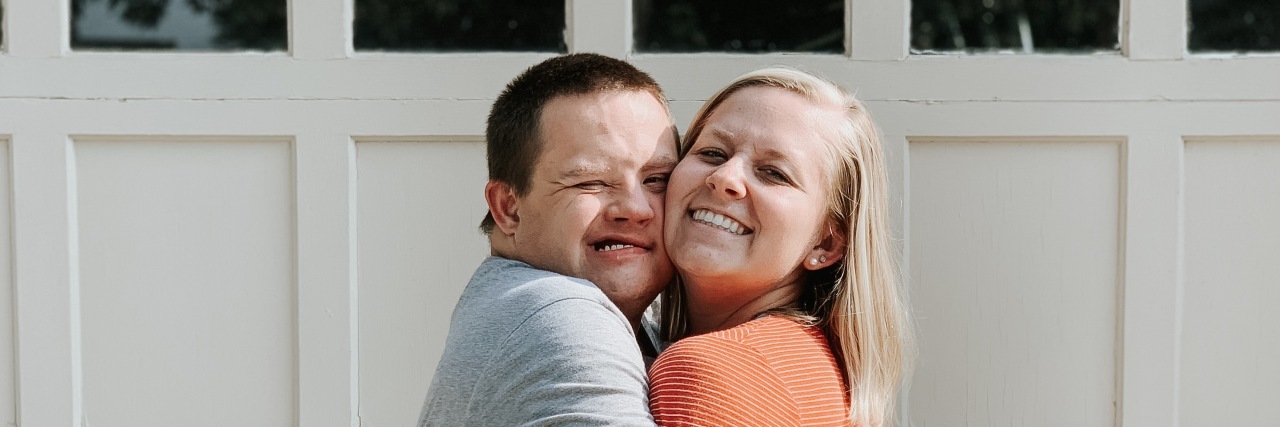Driving in the car, at age 12, the song “Let’s Get Retarded” came on the radio. (You know, the Black Eyed Peas song you thought was called “Let’s Get It Started” right from the get-go?) I sang along, because it was catchy and I was 12. But then my mom told me we had to change the song because “retarded” was a bad word.
I remember responding with confusion. I knew (or I thought I did) all of the swear words, and this wasn’t one of them. So I asked why it was bad. My mom explained it was a word that made fun of my brother. That was all it took. I immediately set a vendetta against the Black Eyed Peas (because that’s how I used to work when you crossed a line with me) and was dead set on making sure that word was never spoken. Funny thing — once you are aware of something, you notice it everywhere. And I quickly realized this word was all around me, and if it was allowed to be played on the radio, it was clearly not a word many people had a problem with. Yet.
I’ve been on a near-14-year mission to eradicate the r-word from our language, and though words are only words, I have found them to be full of unexpected power — the ability to hurt or heal, transform lives or destroy them, remind people of their worth or shame them with their worst. Words have power. Yes, even if you don’t give them any; I promise you, they still do.
Because of this, I’d like to encourage us to keep the fight for language that places the person first and values that person’s humanity. The r-word does neither of these things. It targets, arguably, the most vulnerable and kindhearted group of individuals (that being, individuals with intellectual and developmental disabilities) and exacerbates the belief that they are “dumb.” This, in turn, devalues the individuals who were once respectfully called “retarded” before the word was warped to insinuate stupidity and a slowness synonymous with bad.
People with intellectual disabilities, the ones who are victimized by the r-word, are not to be compared with your lousy parking job, your friend’s silly comment, or the “messed up” news you just received. But this is what the r-word does. It compares the least deserving population of individuals to unwanted circumstances, thus perpetuating the lie that they, too, are unwanted.
You see the problem? I think most of us do, because the r-word’s presence in our language has dramatically decreased in recent years. And I truly believe so much of this improvement can be attributed to the work of Special Olympics and Best Buddies’ Spread the Word to End the Word movement.
The r-word may be on its way out, but there is still room for improvement in the way society perceives and treats individuals with disabilities.
Bias check: how many of you still assume the employee with an intellectual disability will bag your groceries slower than the employee in the line over? How many of you assume that talking in a higher-pitched voice, with slower cadence, will benefit an individual with a disability in understanding you? How many of you ask where the special education teacher is when a child with a disability shows up in your child’s general education classroom?
Our implicit bias still has fooled us into believing the lie that individuals with intellectual disabilities are “slow” and “stupid,” r-word or not. And that’s why I believe so strongly in inclusion — because the more our communities see people of all abilities represented, included and celebrated, the more our attitudes and prejudices will begin to organically change. Enter “Spread the Word: Inclusion” day which serves to expand the focus beyond the elimination of a single word to the elimination of all hurtful language and actions; to share the value that inclusion offers to everyone. That day? It’s March 4, the first Wednesday of March every year. But really, the inclusion movement is every day. Or it has the potential to be. So let’s celebrate ending the r-word today, let’s celebrate inclusion today, and let’s do it again tomorrow, too.
Ending the r-word is a big first step — one worth celebrating and continuing to work on — but we’ve got some more steps to take before inclusion is universal and therefore obsolete. I believe we can see the day.

